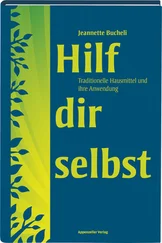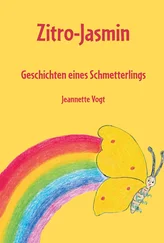Santa Fe was a beautiful old place-Dad pointed out that the Spanish arrived here even before the first Poms got to Virginia-with low adobe buildings and dusty streets lined with Spanish oaks. The school was right in the middle of town, a couple of four-story Gothic buildings with crosses on top and a chapel with a choir loft reached by what was known as the Miraculous Staircase.
Mother Albertina, the Mother Superior, showed us around. She explained that the Miraculous Staircase had thirty-three stairs-Jesus’s age when he died-and that it went in two complete spirals without any of the usual means of support, such as a center pole. No one knew what type of wood it was made of or the name of the mysterious carpenter who showed up to build it after the original builder failed to include a staircase and the nuns prayed for divine intervention.
“So you’re saying it’s a miracle?” Dad asked.
I started to explain what Dad was saying, but somehow Mother Albertina understood him perfectly.
“I believe everything is a miracle,” she said.
I liked the way Mother Albertina said that, and from the beginning, I liked her, too. Mother Albertina was tall and wrinkled and had walnut-colored skin and thick black brows that formed a single line above her eyes. She always appeared calm even though she was constantly on the move, checking in on the dorms at night, inspecting our fingernails, walking briskly along the paths, her long black robes and white-trimmed headdress billowing in the wind. She treated all of us students-she called us “my girls”-the same, whether we were rich or poor, Anglo or Mexican, smart or utterly lacking in any talent whatsoever. She was firm without being stern, never raised her voice or lost her temper, but it would have been unthinkable for any of us to disobey her. She would have made a fine horsewoman, but that wasn’t her Purpose.
I also really liked the academy. A lot of the girls moped around feeling homesick at first, but not me. I had never had it so easy in my life, even though we rose before dawn, washed our faces in cold water, attended chapel and classes, ate corn gruel, practiced piano and singing, mended our uniforms, swept the dorms, cleaned the dishes and privies, and attended chapel again before going to bed. Since there were no barn chores, life at the academy felt like one long vacation.
I won a gold medal for my high scores in math and another for overall scholarship. I also read every book I could get my hands on, tutored other girls who were having problems, and even helped some of the sisters grade papers and do their lesson plans. Most of the other girls came from rich ranch families. Whereas I was used to hollering like a horse trainer, they had whispery voices and ladylike manners and matching luggage. Some of the girls complained about the gray uniforms we had to wear, but I liked the way they leveled out the differences between those who could afford fancy store-bought clothes and those of us, like me, who had only home-dyed beechnut brown dresses. I did make friends, however, trying to follow Dad’s advice to figure out what someone wanted and help her get it, though it was hard, when you saw someone doing something wrong, to resist the temptation to correct her. Especially if that someone acted hoity-toity.
About halfway into the school year, Mother Albertina called me into her study for a talk. She told me I was doing well at Sisters of Loretto. “A lot of parents send their girls here for finishing,” she went on, “so they’ll be more marriageable. But you don’t have to get married, you know.”
I’d never thought much about that before. Mom and Dad always talked as if it was a matter of course that Helen and I would marry and Buster would inherit the property, though I had to admit I’d never actually met a boy I liked, not to mention felt like marrying. On the other hand, women who didn’t marry became old maids, spinsters who slept in the attic, sat in a corner peeling potatoes all day, and were a burden on their families, like our neighbor Old Man Pucket’s sister, Louella.
I wasn’t too young to start thinking about my future, Mother Albertina continued. It was just around the bend and coming at me fast. Some girls only a year or two older than me got married, she said, while others started working. Even women who got married should be capable of doing something, since men had such a habit of dying on you and, from time to time, running off.
In this day and age, she went on, there were really only three careers available. A woman could become a nurse, a secretary, or a teacher.
“Or a nun,” I said.
“Or a nun,” Mother Albertina said with a smile. “But you need to have the calling. Do you think you have the calling?”
I had to admit I wasn’t sure.
“You have time to reflect on it,” she said. “But whether or not you become a nun, I think you’d make a wonderful teacher. You have a strong personality. The women I know with strong personalities, the ones who might have become generals or the heads of companies if they were men, become teachers.”
“Like you,” I said.
“Like me.” She paused for a moment. “Teaching is a calling, too. And I’ve always thought that teachers in their way are holy-angels leading their flocks out of the darkness.”
For the next couple of months, I thought about what Mother Albertina had said. I didn’t want to be a nurse, not because I was bothered by the sight of blood but because sick people irritated me. I didn’t want to be a secretary because you were always at the beck and call of your boss, and what if it turned out you were smarter than him? It was like being a slave without the security.
But being a teacher was entirely different. I loved books. I loved learning. I loved that “Eureka!” moment when someone finally figured something out. And in the classroom, you got to be your own boss. Maybe teaching was my Purpose.
I was still getting comfortable with that idea-and in fact, finding it mighty appealing-when one of the nuns told me that Mother Albertina wanted to see me again.
MOTHER ALBERTINA WAS SITTINGbehind her desk in her study. She had a solemn expression I’d never seen before, and it gave me an uneasy feeling. “I’ve got some unfortunate news,” she said.
Dad had paid the first half of my tuition at the beginning of the year, but when the school billed him for the rest, he’d written back to say that, due to a change in circumstances, he was unable to assemble the funds at this juncture.
“I’m afraid you’re going to have to go home,” Mother Albertina said.
“But I like it here,” I said. “I don’t want to go home.”
“I know you don’t, but the decision’s been made.”
Mother Albertina said she’d prayed on the matter and discussed it with the trustees. Their thinking was that the school was not a charity. If the parents agreed to pay the tuition, as Dad had, the school counted on the money to meet expenses, provide scholarships, and support the order’s mission on the Indian reservations.
“I could work for it,” I said.
“When?”
“I’ll find the time.”
“Your entire day is full as it is. We make sure of that.”
Mother Albertina told me there was one other option. I could take the cloth. If I joined the order of the Sisters of Saint Loretto, the church would pay my tuition. But that would mean going to the novitiate in California for six months, then living in the convent instead of the dormitory. It would mean marrying the Lord Jesus and submitting totally to the discipline of the order.
“Have you had any chance to reflect on whether you’ve felt the calling?” Mother Albertina asked.
I didn’t say anything right away. The truth was, the idea of being a nun didn’t exactly fill me with enthusiasm. I knew I owed God a hefty debt for sparing our lives in the tornado, but I figured there had to be another way of paying him back.
Читать дальше









